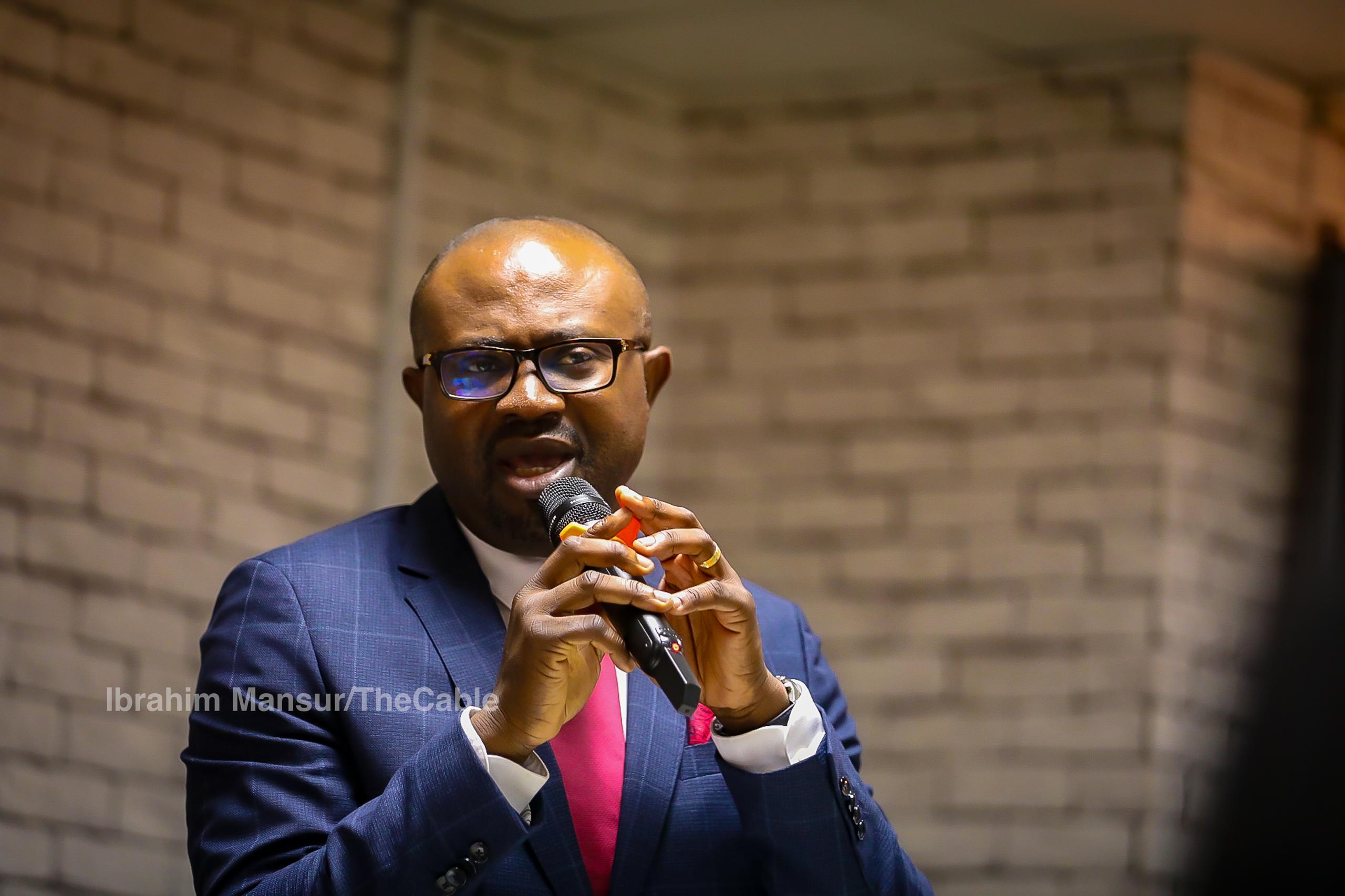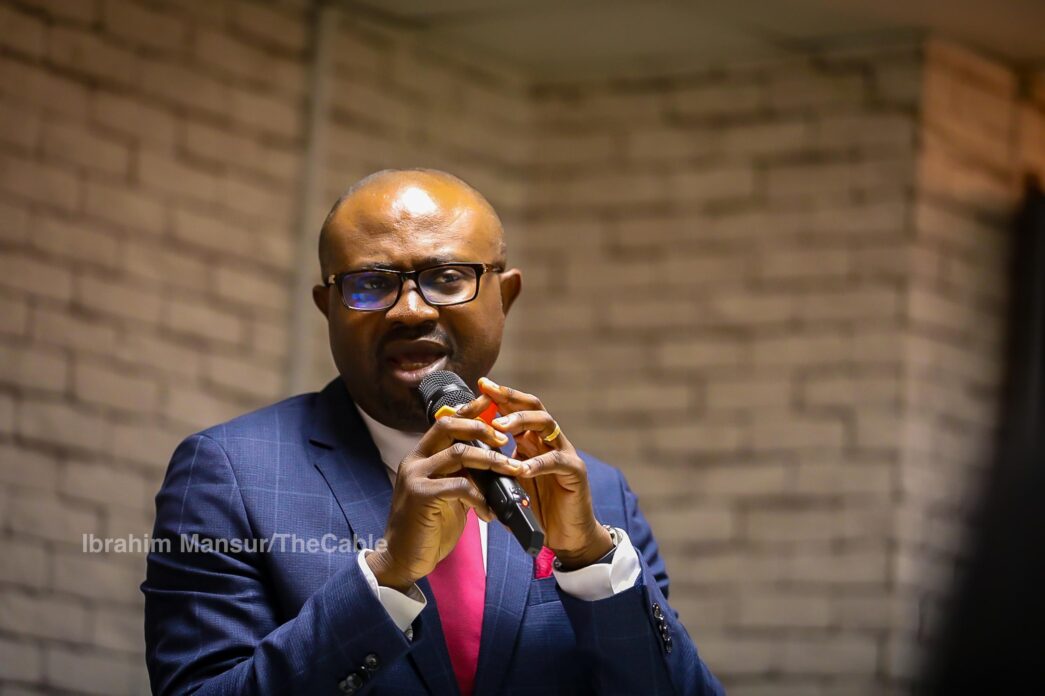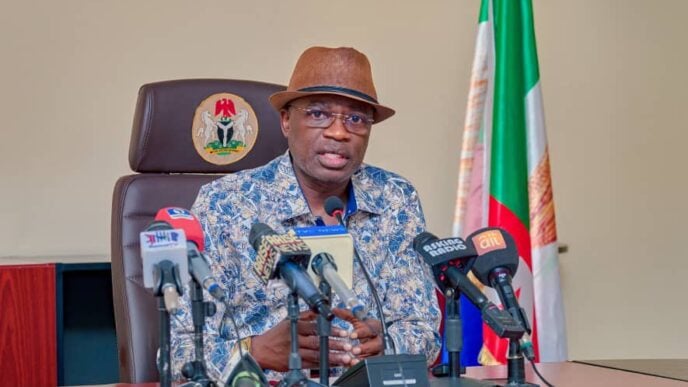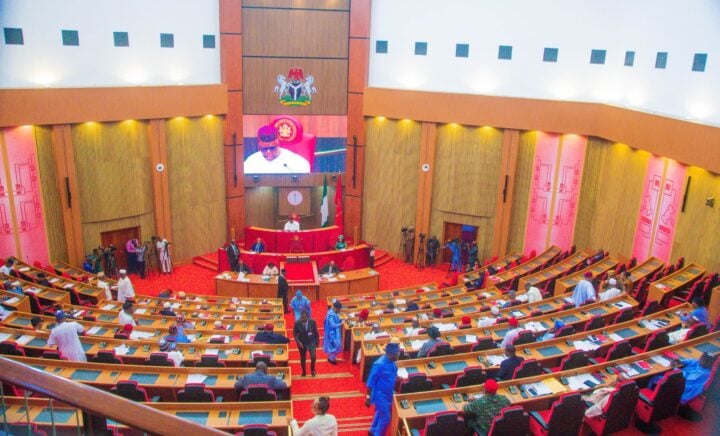Olubunmi Tunji-Ojo
Olubunmi Tunji-Ojo, minister of interior, says the porous nature of the nation’s borders and the underfunding of the police are major threats to internal security.
The minister said the Nigeria Immigration Service (NIS) has been allocated a mere 10 billion naira to secure Nigeria’s extensive 4,024 square kilometre border space — a figure he described as grossly insufficient.
He warned that porous borders could worsen security threats, calling for a realistic approach to tackling the challenge.
“If you look at 2025 budget, how much do you even have for border security? The whole budget of the Nigeria Immigration Service is about N10 billion,” Tunji-Ojo said.
Advertisement
“And you want to protect 4024 sq/km of our border space; are we joking?
“If you kill one terrorist and the border is porous, 20 would come in, and the military are challenged. So, for us, we need to be very realistic with ourselves: do we want a system that works, or do we just want to play the gallery?”
He also said the Nigeria Police Force (NPF) should not be relying on budgetary allocations, noting that such arrangements undermine the efficiency and effectiveness of the security agency.
Advertisement
“I do not see a reason why our police should even rely on budgetary allocations. You have a police force that relies on budget and capital release and all that, and you think we would be efficient,” he said.
Tunji-Ojo praised the capabilities of Nigeria’s internal security agencies, including the Department of State Services (DSS), as well as the leadership provided by the National Security Adviser (NSA).
He said many Nigerians often mistake the role of the military for internal security, describing it as a “sign of failure” of the country’s internal security agencies.
“We have the most brilliant people in our DSS; we have our NIN working fine; see the kind of leadership that the NSA is providing.
Advertisement
“But the truth is that when we talk about internal security, the first thing that comes to a Nigerian’s mind is the military. That is a sign of the failure of our internal security agencies,” he said.
He called for the establishment of a “proper and comprehensive” cybersecurity framework, rejecting the current ad hoc arrangements as inadequate for the evolving digital threats facing the nation.
“We have an opportunity to get things right. The attention we are supposed to pay to cybersecurity – we are still living 20 years behind. We cannot continue to run a cybersecurity architecture on an ad hoc arrangement; there must be a proper security framework.”
Advertisement












